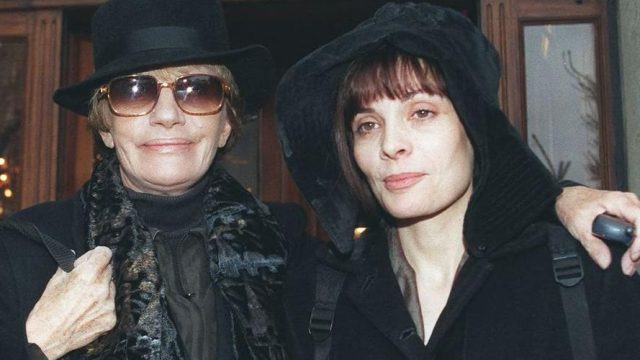When we talk about separating the art from the artist, what we usually mean is “this artist is toxic, but I want to continue enjoying their work.” The discussion involves things like “how much of this sexual predator’s actions are visible in his screenplays and/or performances” and “will buying tickets to this movie give money to its star’s cult that kills mentally ill people?” and things like that. However, sometimes the most personal art comes from a person’s own pain and not that they inflict on others, and that makes it clear how much the two are inseparable.
Nadine Trintignant got her start in the film industry as a literal teenager; when she was fifteen, she was working as a lab assistant, presumably helping to develop film. From there, she rose to editing; at 21, she was credited as an assistant editor on Du Rififi Chez les Hommes. Eventually, she began directing her own films, starting with shorts. Her films were deeply personal, covering topics such as abortion and the death of a child. Her films were also strongly informed by her feminism.
When the dead child in a movie is played by footage of your own child who died at nine months, that’s a personal movie. You cannot separate the art and the artist in that situation, and it’s clear from how Ça N‘arrive Qu’aux Autres was made that Trintignant didn’t want you to. It’s not just the footage of Pauline Trintignant that makes that obvious. True, the movie stars Catherine Deneuve and Marcello Mastroianni, but her own brother plays Deneuve’s brother. Her other daughter, Marie, is in it as well. Oh, it’s possible not all of Trintignant’s films are quite so personal, but at the absolute least this one is and is inseparable from her own life.
It seems as though French cinema produces women who make deeply personal films like this one, films about feminist issues, and I wonder how much of that is anger and frustration with the men who dominate the French film industry. To this day, French cinema can be incredibly misogynistic; if that’s what they’re putting into the screenplays, it seems deeply unlikely that actually working in the industry is great for these women. This is not to say it’s exactly a shining light of feminism in the US, of course, but there is a core of anger in a lot of these movies that seems strongly connected to the subject.
Though if Trintignant’s films also feature sorrow, that’s hardly surprising. Yes, there’s the young and unexpected death of Pauline. That’s hard enough to deal with; we came closer than I’d like to sharing that grief. However, she did a lot of collaborations over the years with Marie. Marie’s Wikipedia page is more blunt on the subject, but Nadine’s glosses over Marie’s death with “she died of injuries inflicted by her boyfriend . . . during a domestic dispute.” At least Marie’s page makes it clear that the boyfriend was convicted of murder. This must have been horrible to live through; no wonder it shapes her art.

